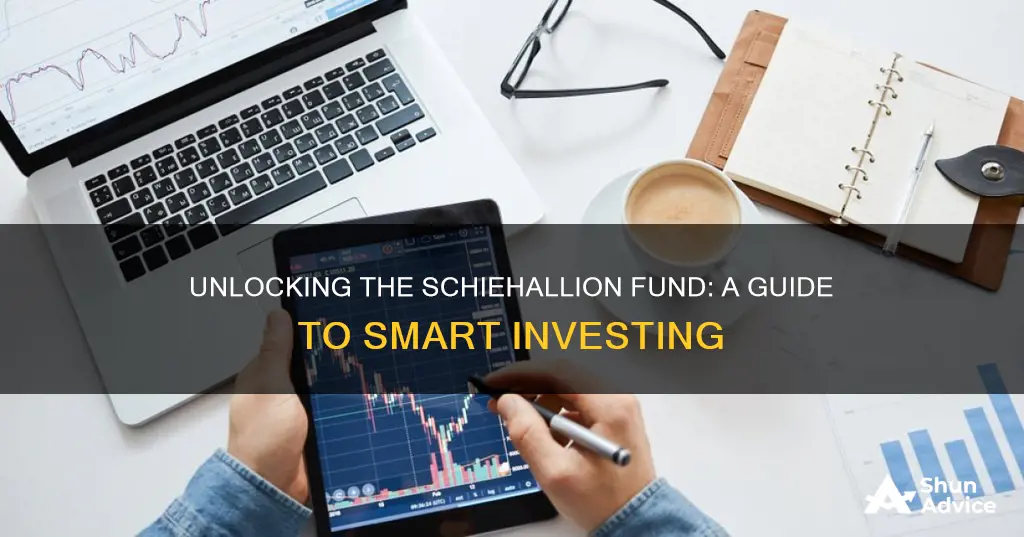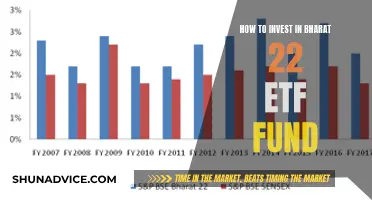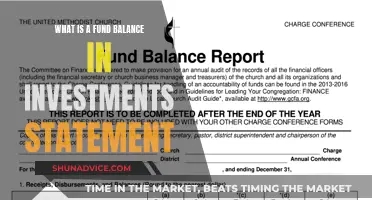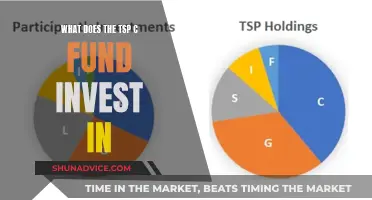
The Schiehallion Fund is a low-key investment trust launched by Baillie Gifford in March 2019, designed primarily for institutional investors. The fund seeks to generate capital growth for investors through long-term minority investments in later-stage private businesses that the company considers to have transformational growth potential and the potential to become publicly traded. The fund typically invests in later-stage private companies valued at more than $500 million, often young operations that are still loss-making. Baillie Gifford's long-term approach and scale of investment mean it gets invited to the most attractive unlisted opportunities. The fund has a unique focus on identifying high-growth, late-stage private companies and providing investors with access to this type of investment.
| Characteristics | Values |
|---|---|
| Investment Objective | To generate capital growth for investors through long-term minority investments in later-stage private businesses that the Company considers to have transformational growth potential and to have the potential to become publicly traded. |
| Investment Manager | Peter Singlehurst |
| Deputy Investment Manager | Robert Natzler |
| Share Price | $0.83 |
| Estimated NAV | $119.00 |
| Premium/Discount | -32.77% |
| Annual Management Charge | N/A |
| Market Capitalisation | N/A |
| Type of Company | Closed Ended Investment Company |
| Dividend History | N/A |
| Top 10 Holdings | Bending Spoons S.P.A. Class C, Wise plc ORD GBP0.01, Space Exploration Technologies Corp Series K Pref., Bytedance Ltd Series E-1 Pref., Space Exploration Technologies Corp Series N Pref., Brex Inc. Class B Common, Affirm Holdings Inc Ordinary Shares - Class A, Tempus AI Inc Class A common stock, Wayve Technologies Ltd Series B Pref., Databricks, Inc. Series H Pref. |
| Top 10 Sectors | N/A |
| Top 10 Countries | N/A |
What You'll Learn

The fund's investment strategy
The Schiehallion Fund's investment strategy is to generate capital growth for investors through long-term minority investments in later-stage private businesses that the company considers to have transformational growth potential and the potential to become publicly traded. The fund typically invests in "later-stage" private companies valued at more than $500 million, with a preference for young, disruptive businesses that are often still in the red.
The fund's managers aim to identify high-growth, late-stage private companies by using a proprietary '10 Questions' research framework. This framework addresses issues such as the scale of the opportunity, competitive edge, potential returns, and ESG-related topics.
The fund has a long-term investment horizon, believing that over this timeframe, there is a convergence between what is good for a business and what is good for the world at large. This includes considering the positive and/or negative externalities produced by a company's operations, such as its impact on customers, regulators, staff, and society.
The fund seeks to create value for shareholders in two ways. Firstly, by investing in companies privately and benefiting from value creation before they list publicly. Secondly, by continuing to own those businesses once they go public, thereby enjoying further growth and compounding returns.
The fund's portfolio includes well-known companies such as Alibaba, Lyft, Spotify, Airbnb, SpaceX, Bytedance, and Epic Games. It tends to invest in US businesses, which account for over 70% of net assets, but also has exposure to the UK, China, Germany, and Sweden.
The fund's managers are Peter Singlehurst (lead), Mark Urquhart, and Robert Natzler (deputies). The fund is designed primarily for institutional investors, with a minimum investment size of $5 million for its recent C share issue.
American Funds: Which Investment Companies to Look For?
You may want to see also

The fund's ESG approach
The Schiehallion Fund's approach to ESG (Environmental, Social, and Governance) is deeply intertwined with its core investment philosophy. The fund managers believe that over their long-term investment horizon, there is a convergence between what is good for a business and what is good for the world. This contradicts the conventional view that profitability and ethical behaviour are at odds with each other, which they attribute to short-term thinking.
The fund's investment philosophy centres around the belief that a company's profitability is dependent not only on its ability to serve customers well but also on its ability to do so without compromising its social licence to operate. Therefore, they consider a company's role in the broader system to be integral to their core investment work, rather than treating ESG as a separate rubric.
To structure their research into potential investments, the fund managers use a proprietary '10 Questions' research framework. While some questions focus on the scale of the opportunity, competitive edge, and potential returns, others specifically address ESG-related topics.
For example, Question Four asks about the company's culture and its alignment with the leadership's long-term business vision, including how it treats its staff. Meanwhile, Question Five explores the company's ecosystem impact and its relationship with external stakeholders. Question Six delves deeper into the environmental and social factors that create opportunities and risks for the company.
This approach allows the fund managers to explore the complexities of companies as ecosystems and make nuanced, subjective considerations. They believe that reducing a company's impact to a single metric or factor is unwise and that ESG factors are fundamental to long-term investment analysis.
The Schiehallion Fund, in particular, reflects the Private Companies Team's beliefs. For instance, they have invested in Allbirds, a company that aims to reduce its carbon footprint by using sustainable materials for its shoes and apparel. Allbirds is transparent about the carbon emitted during production, even stamping this information on their products. This approach benefits both the environment and the company's product proposition, appeal, and branding.
Another example is Chime, a financial technology company that offers online bank accounts and treats its customers better than traditional banks. Chime's societal impact is not a hindrance but a driver of its growth, as it attracts millions of middle- and lower-income Americans.
The fund managers also emphasise the benefits of avoiding single-point-in-time 'snapshots' of a company's societal impact, as these often exclude what is most important. Instead, they prefer a qualitative, investor-led approach that considers the broader systemic impact. An example of this is their investment in Workrise (formerly RigUp), which initially focused on the oil and gas industry but has since expanded into the renewable energy sector. While a snapshot approach might have focused on the company's association with a carbon-intensive industry, the fund managers recognised the positive societal impact of helping skilled blue-collar workers and the strategic value of future-proofing the company in a likely energy supply transition period.
The fund managers also decline investment opportunities in companies that jeopardise their social licence to operate due to concerns about governance, even if these concerns are narrowly viewed through an 'ESG' lens. Examples include Uber in 2014 and WeWork in 2018.
Additionally, they take care to avoid investing in companies that limit the basic rights and freedoms of individuals, such as leading-edge facial recognition technology used by authoritarian governments.
The fund managers also highlight three ways that 'ESG' considerations differ in private markets compared to public markets:
- Primary Capital Investments: The majority of their investments are made as primary capital, directly onto a company's balance sheet, which they believe magnifies the implications of their capital deployment.
- Mission-Driven Businesses: In the late-stage private ecosystem, they encounter more mission-driven businesses that view doing the right thing as a competitive strength in terms of product, recruitment, and retention.
- Relationship and Influence: As private investors, they often have a different relationship with holdings, building deep relationships of trust with management teams before investing. This provides a platform for conversations and influence regarding how a company treats its stakeholders, and they sometimes take board observer seats to have greater informal influence.
Overall, the Schiehallion Fund's approach to ESG is deeply integrated into its investment philosophy, and they believe that ESG factors are fundamental to understanding companies as complex systems within larger ecosystems.
Strategic Investing: Maximizing Returns with Closed-End Funds
You may want to see also

The fund's performance
The Schiehallion Fund, managed by Baillie Gifford, seeks to generate capital growth for investors through long-term minority investments in later-stage private businesses. These companies are typically valued at over $500 million and are expected to have transformational growth potential and the ability to become publicly traded.
Since its launch in March 2019, the Schiehallion Fund has become one of Baillie Gifford's largest investment trusts, with a market capitalisation of £1.26 billion as of June 2021. The fund has a strong track record, generating a gross internal rate of return (IRR) of 32.1% as of December 2020. This IRR was achieved through 83 investments, resulting in a gross multiple of invested capital (MOIC) of 2.14.
The Schiehallion Fund's share price has fluctuated, trading at a premium to net assets. As of June 2021, the Ordinary shares traded at a premium of 22%, while the C shares traded at a premium of 26%. The fund's performance has also been impacted by the conversion of C Shares to Ordinary Shares in September 2023, with all information reflective of the merged Schiehallion Fund from September 2023 onwards.
Overall, the Schiehallion Fund's performance has been strong, with a year-to-date return of 29% as of 2021. The fund's long-term approach, scale of investment, and focus on transformative companies have contributed to its success. However, it is important to remember that past performance does not guarantee future results, and the value of investments can decrease as well as increase.
Global Funds: Where to Invest and How to Start
You may want to see also

The fund's management
The Funds Management
The Schiehallion Fund Limited is managed by Baillie Gifford and was launched in March 2019. The fund seeks to generate capital growth for investors through long-term minority investments in later-stage private businesses that the company considers to have transformational growth potential and the potential to become publicly traded. The fund typically invests in "later-stage" private companies valued at more than $500 million and takes small stakes of less than 1% in these businesses.
The fund is managed by Peter Singlehurst, Head of the Private Companies Team at Baillie Gifford, who joined the firm in 2010. He is supported by Robert Natzler, a deputy manager of the fund and a member of the Private Companies Team, who joined Baillie Gifford in 2015.
The fund has a unique investment strategy, focusing on identifying high-growth, late-stage private companies and investing in them over the long term. This strategy is reflected in the fund's thesis, which is to create value for shareholders by investing in companies privately and benefiting from value creation before they list publicly, and then continuing to own those businesses post-IPO to enjoy further growth and compounding returns.
The fund's investment strategy is guided by a proprietary '10 Questions' research framework, which addresses issues such as the scale of the opportunity, competitive edge, potential returns, and ESG-related topics. This framework enables the fund to explore the complex and nuanced nature of companies as ecosystems and make investment decisions that consider the long-term impact on customers, regulators, and staff.
The Schiehallion Fund has a low-cost structure, with an ongoing charges figure of 0.77%-0.85%, which is competitive for a trust specialising in unlisted companies. The fund raised $477 million during its initial public offering and an additional $700 million through a 'C' share issue, bringing its market capitalisation to nearly £1.3 billion.
The fund's share price is quoted in US dollars and trades at a premium to net assets, reflecting strong investor demand. The fund's performance has been positive, with a 29% year-to-date return as of June 2021, outperforming other Baillie Gifford trusts.
In summary, the Schiehallion Fund offers investors exposure to high-growth, late-stage private companies with the potential for transformational growth. The fund's unique investment strategy, experienced management team, and competitive cost structure make it an attractive investment opportunity for those seeking long-term capital growth.
Best Mutual Fund Platforms: Where to Invest?
You may want to see also

How to buy shares in the fund
To buy shares in the Schiehallion Fund, you will need to have an account with a broker that supports this investment. The Schiehallion Fund is available on several online investment platforms, including Hargreaves Lansdown, Interactive Investor, and AJ Bell YouInvest. However, it may not be listed on all platforms, and some platforms may require you to class yourself as a sophisticated investor before allowing you to trade.
The Schiehallion Fund is designed primarily for institutional investors and has a minimum investment size of $5 million. The fund seeks to generate capital growth by investing in later-stage private businesses with high growth potential that are expected to become publicly traded. The fund typically invests in "later-stage" private companies valued at more than $500 million and tends to focus on young, disruptive businesses, which may still be loss-making.
It's important to note that the value of investments can go down as well as up, and you may not get back the amount you originally invested. Before investing, be sure to read the Key Information Document (KID) and consider seeking independent financial advice.
Smart Strategies for Choosing the Right Mutual Fund
You may want to see also
Frequently asked questions
The Schiehallion Fund is an investment fund that seeks to generate capital growth for investors through long-term minority investments in later-stage private businesses. The fund focuses on companies that have transformational growth potential and are expected to become publicly traded. The fund is managed by Baillie Gifford and was launched in March 2019.
The Schiehallion Fund generates returns by investing in later-stage private businesses that have high growth potential. The fund typically invests in companies valued at more than $500 million and focuses on businesses that are young and may still be loss-making. The fund also aims to benefit from value creation by investing in companies before they go public and continuing to own those businesses after they list.
Investing in the Schiehallion Fund carries certain risks. The value of investments may go down as well as up, and investors may not get back the amount they originally invested. The fund invests in private companies, which may be more difficult to sell and may have greater price fluctuations. Additionally, the fund invests in overseas securities, and changes in exchange rates may impact the value of investments.







